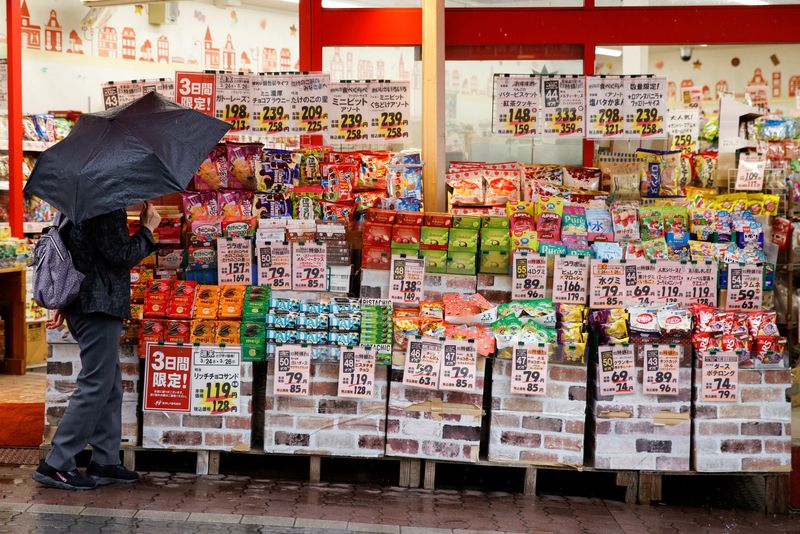By Leika Kihara
TOKYO (Reuters) – Japan’s core consumer prices in October rose 2.3% from a year earlier, slowing from September’s pace but continuing to exceed the central bank’s 2% target in a sign conditions for further interest rate hikes were falling in place.
The data will be among factors the Bank of Japan will scrutinise at its next policy meeting on Dec. 18-19, when some analysts expect a hike in short-term rates to 0.5% from 0.25% as the central bank unwinds years of ultra-low rates.
The increase in the nationwide core consumer price index (CPI), which includes oil products but excludes fresh food prices, compared with a median market forecast for a 2.2% gain and followed a 2.4% increase in September.
The slowdown was mostly due to the base effect of last year’s government decision to halve subsidies aimed at curbing fuel costs, which bumped up fuel prices from October 2023.
A separate index that strips away the effect of volatile fresh food and fuel, scrutinised by the BOJ as a better gauge of demand-driven inflation, rose 2.3% in October from a year earlier, government data showed on Friday, accelerating from a 2.1% gain in September.
The BOJ ended negative interest rates in March and raised its short-term policy rate to 0.25% in July on the view Japan was on the cusp of durably achieving its 2% inflation target.
Governor Kazuo Ueda has stressed the central bank’s readiness to raise rates again if Japan continues to make progress in durably achieving its price target backed by solid domestic demand and sustained wage gains.
A Reuters poll conducted on Oct. 3-11 showed a slim majority of economists projected the BOJ would forgo raising rates this year, although nearly 90% expected rates to increase by March.
Click Here to Read the Full Original Article at All News…


